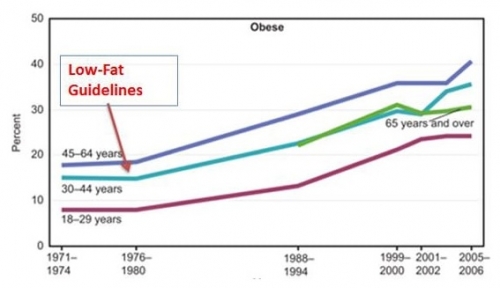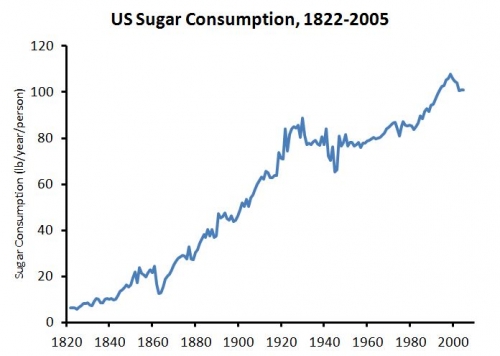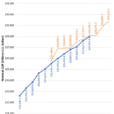Over the past century, buying and holding dividend growth stocks has been one of the most reliable ways to build wealth.
But it’s important to be nimble with your investments, to question old assumptions, and to be well-positioned for the future. Buy-and-hold investing means maintaining a low portfolio turnover rate, but doesn’t mean you can’t rotate away from dying industries when the writing is on the wall.
The Coca Cola Company (NYSE: KO), once one of the bluest of blue chip stocks, faces a far more uncertain future than it has experienced in any time in history. They’re a $200 billion company that essentially sells sugar water, and sugar is the new tobacco.
The Health Effects of Sugar
More and more studies have been piling up over the past decade showing that excessive sugar is playing a key role in skyrocketing global obesity and diabetes rates, and putting severe pressure on healthcare systems around the world.
For decades, fat was the target, but telling Americans and the rest of the world to reduce dietary fat (and the subsequent replacement with carbohydrates including sugar) has been correlated with an unprecedented rise of obesity and similar disorders rather than solving any of the problems it was intended to help with.

Source: Healthline, using data from the National Center for Health Statistics
Now, the focus is increasingly being shifted towards sugar, as study after study has supported the notion that sugar is something we need to be far more concerned about than fat.
Added sugar has gone from a negligible dietary inclusion to being one of our principle forms of carbohydrate intake:

Source: Dr. Stephen Guyenet
And here’s a summary by Dr. Peter Attia about a paper published by his colleague Dr. Robert Lustig in Nature back in 2012:
Sugar consumption is linked to the dramatic rise in obesity, diabetes, cancer, heart disease, and Alzheimer’s disease (i.e., the diseases that cluster around metabolic syndrome). Effectively, sugar speeds up our aging process.
The metabolic effect of sugar, and fructose in particular (fructose makes up half of sugar – sucrose is 50% glucose, 50% fructose; HFCS is 45% glucose, 55% fructose), is nearly identical to that of ethanol (drinking alcohol).
As such, sugar should be regulated in a manner commensurate with the damage it causes.











Leave A Comment